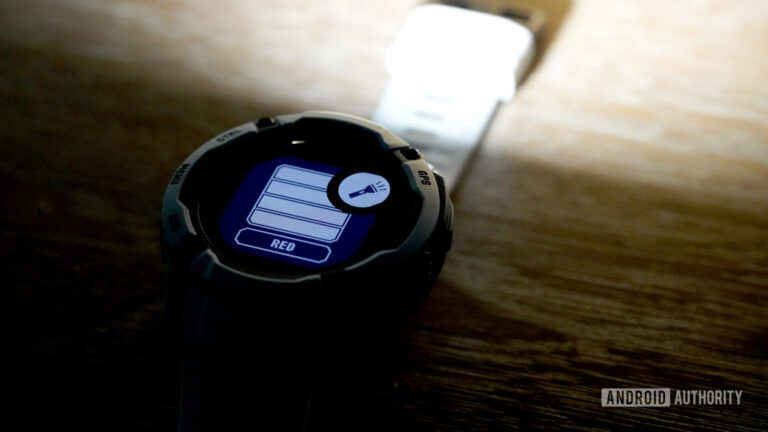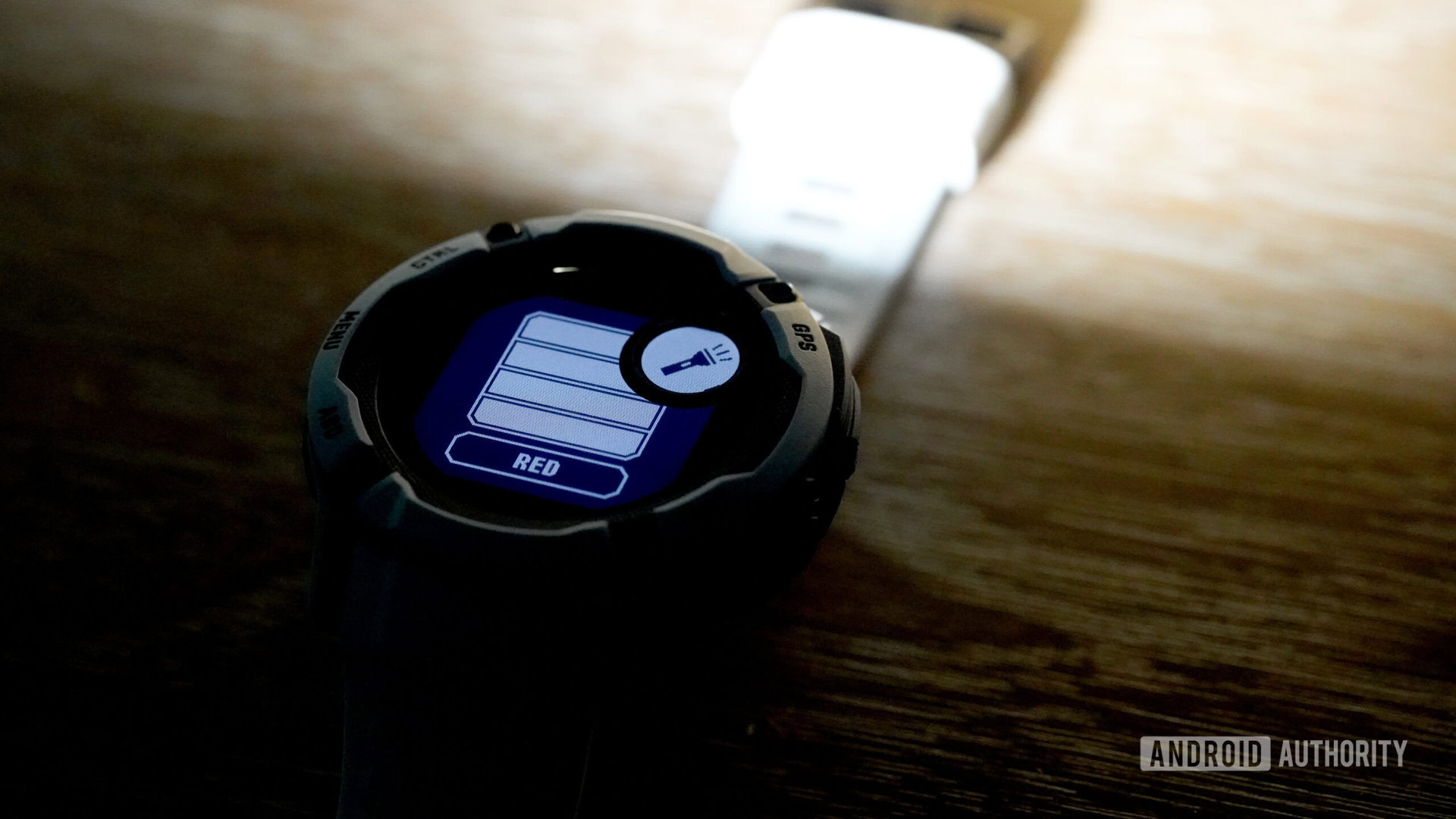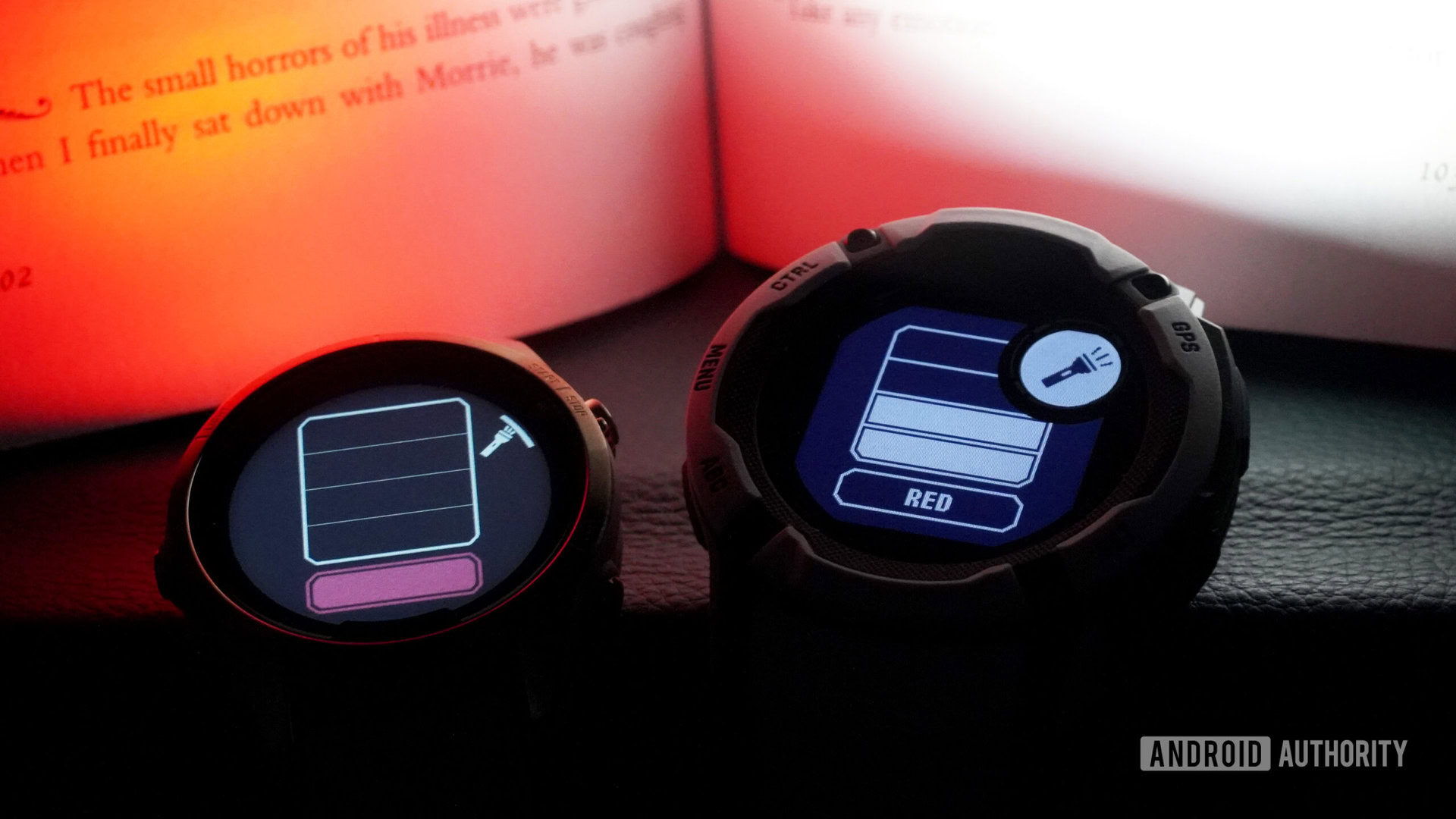
[ad_1]

Kaitlyn Cimino / Android Authority
I’m not shy about my appreciation of Garmin devices, especially when it comes to trekking up mountains and getting lost in the woods. However, my latest Garmin obsession has nothing to do with stats or GPS accuracy. Instead, it’s an add-on feature I’m jonesing to see other wearable brands adopt. The Garmin LED flashlight ceremoniously making its way to many of the company’s top multisport devices is surprisingly useful, and not just for adventuring. I’d drop extra cash to see leaders like Samsung, Apple, and Google elevate their smartwatches with this highly-useful tool.
I desperately want to see Samsung, Apple, and Google adopt Garmin’s built-in LED flashlight on their own devices.
Before you get your hands on an equipped Garmin watch, an LED flashlight on your fitness tracker may sound like a gimmick. Even listing top use cases makes the addition sound logical, but not wholly necessary. Once you’ve strapped one to your wrist though, I assure you, you’ll be sold. Just like the flashlight on your smartphone, Garmin’s built-in flashlight comes in handy on a daily basis for everyday tasks.
At night, I use it to shuffle to the bathroom without waking my partner and to lead search parties into our outdoor washing machine hunting for rogue socks. When I’m feeling particularly skittish, I blast light into the back of my car looking for hooded serial killers because my parents let me watch scary movies much too young. By day, I use it to find my helpless robot vacuum when he gets stuck under the bed… again.

Kaitlyn Cimino / Android Authority
Of course, Garmin’s devices are built for the outdoorsy crowd who define adventuring by how many trails they’ve traced or tents they’ve pitched. In these scenarios, the built-in flashlight is even more valuable. For starters, it’s already connected to your body so there’s no remembering to pack it or rummaging through your bag when you need to illuminate a scary noise in the brush.
It’s also significantly more powerful than the Apple Watch Ultra’s screen-based option, for example, which is fine for emergencies, but not going to do it for me when cockroaches may be close at hand. Garmin’s flashlight is not a protective patronus either, but it’s bright enough to make me feel comfortable. Just last week I relied exclusively on the wrist-based torch after watching the sunset from the top of Koko Crater, a notoriously steep hike comprised of more than 1000 steps up an old tramway.
Useful everywhere from twilight hikes to midnight bathroom runs, the wrist-based torch is much more powerful than competitors’ onscreen versions.
The reality is that major companies are gunning for Garmin’s market share, branding their flagship devices with monikers like “Ultra” and “Pro” and touting navigation features like Samsung’s TrackBack or Apple’s distress siren. To compete with a staple like Garmin in the outdoor arena, Samsung, Apple, and Google need to continue elevating their devices. I see absolutely no reason they shouldn’t start by mimicking Garmin’s highly-useful LED flashlight.

Kaitlyn Cimino / Android Authority
Much more than just a novelty, the flashlight serves all the purposes covered above and more, even offering valuable implications when it comes to safety. First, all of Garmin’s devices offer a red light mode to preserve night vision (or to keep you sleepy when necessary). The flashlights also feature adjustable brightness levels and strobe modes for alerting cars to your presence when out on runs. You can even match the lights strobing to your running cadence.
Finally, while Garmin doesn’t publish lumens, I’ve consistently found the lights on my Garmin Epix Pro ($985 at Amazon), Fenix 7 Pro ($48 at Amazon), and Instinct 2X ($404 at Amazon) bright enough to feel safe in a variety of scenarios. Again, the convenience of the tool incorporated into a device you already wear daily is immensely helpful.
When it comes to wearables, the more useful day-to-day tools companies can bring to users’ wrists, the better the overall user experience.
Here at Android Authority, we often muse over the direction of the wearables market. We’ve even questioned whether Apple has reached the limits of what a smartwatch can do (I really hope not). Garmin’s flashlight proves that it hasn’t plateaued just yet. As wearables develop into standalone devices rather than accessories tethered to phones, tools like a flashlight cut one more tie.
Yet, Garmin’s ecosystem isn’t the right fit for anyone looking for a fully-featured smartwatch. The Venu 2 Plus has potential, but its UI is no Wear OS or watchOS. For this reason, I desperately want to see Samsung, Google, and Apple adopt Garmin’s design so I can pair a powerful app library with a (literally) handy torch.
Do you want to see a built-in LED flashlight on your smartwatch?
30 votes
[ad_2]